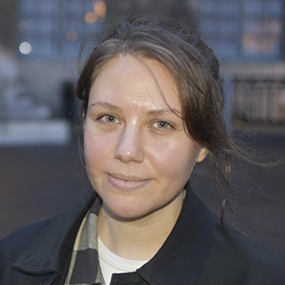- Bulletin: Spring 2025
- Editorial
Guest Editorial
Understanding dyslexia as an adult: the challenges of a late diagnosis


When you're dyslexic, being asked to write anything can be daunting – never mind an article about dyslexia that will be distributed to your peers. So why do it? Well, with spell check and the promise of an editorial proofread we thought it couldn’t go too wrong. But, more importantly, we thought that sharing our personal experiences might help others in similar positions.
We found out we were dyslexic as adults. Our previous understanding of dyslexia was pretty biased. We both have dyslexic brothers with poor handwriting and challenges with spelling that go back to primary school. In our minds, dyslexia didn’t apply to us, especially with our notoriously neat handwriting.
But dyslexia is more than just spelling mistakes. It’s a specific learning difference affecting how an individual learns and processes information. It doesn’t impact upon intelligence. While this sometimes manifests as bad handwriting or slow reading speed, dyslexia is defined by its impacts on processing of information, working memory, and executive function.
What does that actually mean? New tasks can take longer to become automatic. The ability to hold and manipulate new information can be reduced, taking longer or require more effort to retain. Difficulties with executive function may impact organisational and time-management skills. It might take more cognitive effort for someone with dyslexia to achieve the same result as someone without. Because of this, individuals with dyslexia have often curated individual coping strategies for approaching and understanding new information and skills – whether they have lived with a diagnosis of dyslexia since school or not.
We both completed secondary education, undergraduate medicine, and masters degrees. That’s a lot of higher education, and a lot of exams. Looking back there were maybe some early indications. School reports with comments like ‘not fulfilling potential’ or ‘underachieving’ despite good grades, and eventually exam resits. But if no one had noticed we were dyslexic before, how could we be dyslexic now?
There’s often a delicate balance between success and failure in those with learning differences because of a higher cognitive demand. For some, starting a new rotation or specialty, becoming a trainee or a consultant, or juggling the demands of clinical work, portfolios, research and other responsibilities might tip the balance. For us, it was the perfect storm of life, working full-time, and studying for the primary FRCA as core trainees. The coping strategies we had developed independently over time were not enough and we both had multiple attempts at the exam.
For those working in Scotland (this will vary throughout the UK), there is a recommendation to screen for dyslexia after two consecutive failed postgraduate exams – which isn’t an insignificant number of trainees. We both completed a screening tool which suggested dyslexic traits. This led to a formal assessment with an educational psychologist. Formal assessment not only provides a diagnosis, but also describes what reasonable adjustments an individual might need to help them achieve their full potential. Each report is unique to the individual. Recommendations can include extra time for exams and interviews, and access to quiet spaces to do them. Workplace accommodations include read-to-write software, access to quiet spaces and adjusted deadlines for projects.
We were both lucky to be in a department who rallied behind us as we navigated work and exams with a new diagnosis of dyslexia. Colleagues were understanding and proactive in finding solutions that worked for us, and we thrived with their support.
While being diagnosed with dyslexia can be incredibly frustrating, we have come through the process with a lot of positives. We are grateful to be in a specialty that aligns with our strengths, with its structured, practical approach and relatively minimal administrative tasks. Anaesthesia is a perfect fit for us. We have learned to be kinder to ourselves and to others, recognising that people learn and approach things in different ways. We are open about our learning needs and differences, and strive to create a culture where everyone, dyslexic or not, is supported to achieve their best.
For anaesthetists, we often spend a lot of time providing one-to-one teaching and mentorship. We can be uniquely aware of an individual’s difficulties if we choose to see it. So, whether you’re a colleague, a trainee, a supervisor, or even a parent, remember: understanding, flexibility, and compassion can make all the difference. We hope this encourages you to embrace inclusivity, both in the workplace and in education. People with dyslexia can achieve anything with the right support; it might just take a little more time and ‘brain power’.
Would you like to read more articles from this Bulletin?


